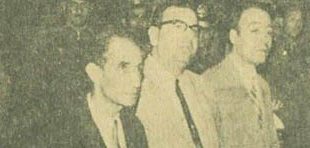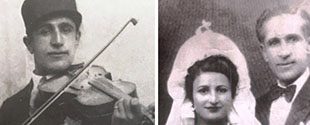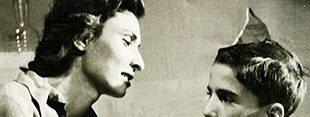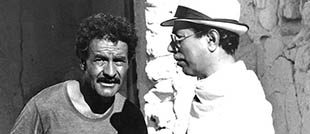When Ali Amini became prime minister of Iran in May 1961, he inherited a country burdened by economic crisis, administrative inefficiency, and deep-seated corruption within the state and military elite. His government came to power with the backing of the Shah, yet its mission quickly placed it in confrontation with entrenched interests across Iran’s bureaucracy and armed forces. Within months, …
Read More »History
The ups and downs of Ramin Parchami’s life
Ramin Parchami , born on September 17, 1973, in Tehran, Iran, is one of the most well-known Iranian actors of his generation—an artist whose career has spanned over three decades across film, television, and theater. His life story is not only that of an actor who rose through the ranks of Iran’s performing arts but also of a citizen who …
Read More »Abdullah Taleh Hamedani, one of the most prominent Iranian Jews
Abdullah Taleh Hamedani, the son of Suleiman, was born in the city of Hamedan in 1292 AH (approximately 1875 CE) into a Jewish family. His life’s journey from a culturally active childhood to becoming one of Iran’s most versatile poets, composers, and musicians of the early 20th century reflects not only his individual brilliance but also the broader currents of …
Read More »Munir Akhundnia is one of the first female cinema actresses.
Monireh Taslimi, born Monir Akhundnia in 1926 in Bandar Anzali (then known as Bandar Pahlavi), was one of the early pioneers of Iranian theater during a time when the stage was just beginning to attract women performers. Despite her short life — she died tragically in 1955 in Tehran at the age of 29 — Taslimi’s artistic courage and her …
Read More »Fashion show of strange hats in the Qajar era
The Qajar dynasty was a formerly aristocratic and later royal Iranian family that ruled Iran from 1789 to 1925. Originating from the Turkoman Qajar tribe, a branch of the Qizilbash confederacy, the Qajars played a decisive role in Iran’s transition from the fragmented post-Safavid era to a unified monarchy under Agha Mohammad Khan Qajar, the dynasty’s founder. Though their rule …
Read More »Saeed Poursamimi holds the record for the most awards
Saeed Poursamimi (born March 23, 1943) stands among the most beloved and enduring figures in Iranian cinema and theater. His career, which spans over six decades, reflects both the transformation of Iranian performance arts and the social and cultural evolutions of Iran itself. Known as “the gentleman of Iranian acting,” Poursamimi has consistently combined humor, intellect, and humanity in his …
Read More »Nasser Taghvaei in the picture frame
Nasser Taghvaei: The Auteur of Southern Light Introduction Nasser Taghvaei (July 12, 1945 – October 12, 2025) was an Iranian filmmaker, photographer, and writer whose artistry left an indelible mark on modern Iranian cinema. Often described as an auteur and a pioneer of the Iranian New Wave, Taghvaei’s cinematic voice was poetic, deeply human, and steeped in the cultural and …
Read More »Hillary and Bill Clinton’s 50th wedding anniversary photos
On a quiet Saturday morning in October 2025, Hillary Rodham Clinton opened her Instagram account and pressed “post.” Within minutes, millions of followers across the world were gazing at a series of black-and-white and sepia-toned photographs — snapshots of another time, another world. The images were not political statements, not campaign moments, not the well-rehearsed smiles of Washington’s elite. Instead, …
Read More »The latest photos of Shohreh Aghdashloo
hohreh Aghdashloo born Shohreh Vaziri-Tabar on May 11, 1952) is an Iranian-American actress whose rich, deep voice and commanding presence have made her one of the most recognizable performers of Middle Eastern descent in Hollywood. Her remarkable career, spanning over five decades and multiple continents, reflects both the tumult of her homeland’s history and the global evolution of cinema. Aghdashloo’s …
Read More »Pictures of Persepolis club legend Hossein Kalani
Hossein Kalani: The Scholar Striker of Iranian Football Hossein Kalani (born 25 February 1944) is widely regarded as one of the most intelligent and multifaceted figures in Iranian football history. Renowned not only for his remarkable goal-scoring ability but also for his intellectual pursuits, Kalani’s life represents the rare synthesis of sports, education, and culture. From his early days in …
Read More »








